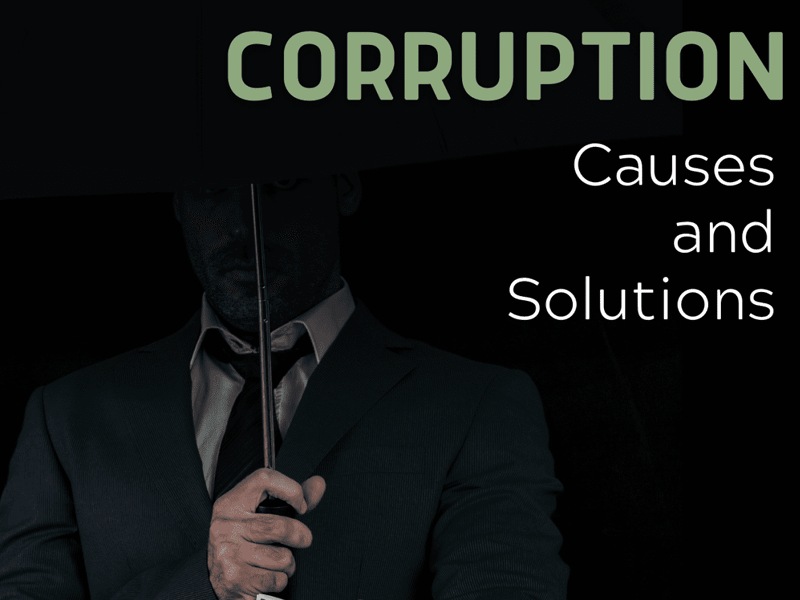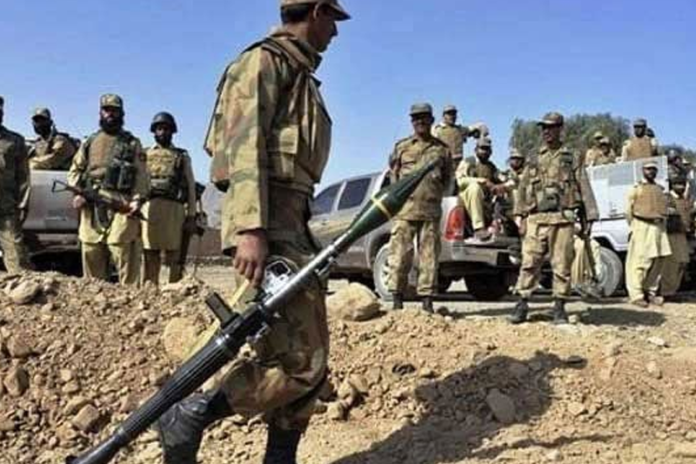CAUSES AND SOLUTIONS OF CORRUPTION IN PAKISTAN

- 279
- 0
Corruption states to a form of criminal activity or dishonesty. It refers to an evil act by an individual or a group. Worth mentioning, this act compromises the rights and privileges of others. Furthermore, Corruption primarily includes activities like bribery or misappropriation. However, Corruption can take place in many ways. Most probably, people in positions of authority are susceptible to Corruption. Corruption certainly reflects greedy and selfish behavior.
Pakistan, a country known for its rich cultural heritage, is facing numerous challenges in its journey toward becoming a developed nation. One of the most persistent and widespread issues that the country has been grappling with is corruption. Corruption in Pakistan has reached a level where it is not only hampering the economic growth of the country but also undermining the social and political fabric.
Corruption is a pervasive problem in Pakistan that has negatively impacted the country’s economy and political stability. It is the abuse of public office for private gain, and it is a major obstacle to Pakistan’s development.
The Causes of Corruption in Pakistan
There are many causes of corruption in Pakistan, including a lack of transparency in government institutions, weak law enforcement, and a lack of accountability. In addition, corruption is often seen as a way for people to get ahead in a society that is plagued by inequality and a lack of opportunities.
One of the most prominent forms of corruption in Pakistan is corruption in the public sector. Government officials often demand bribes from citizens in order to provide them with services that they are entitled to, such as issuing licenses or permits. This not only undermines the rule of law but also discourages investment and stifles economic growth.
The weak rule of law in Pakistan has also contributed to the high levels of corruption in the country. When laws are not enforced and the justice system is unable to hold corrupt officials accountable, it is easier for corruption to thrive. Resources. This not only harms the economy but also undermines public trust in the government and private institutions.
There are several factors that contribute to the high levels of corruption in Pakistan. One of the main reasons is the lack of accountability and transparency in the country’s political and economic systems. This allows corrupt individuals to operate with impunity, as they are able to conceal their activities and avoid being held accountable for their actions.
Another contributing factor is the widespread poverty in Pakistan. Many people are willing to engage in corrupt activities in order to make ends meet, as they see it as a means of surviving in a difficult economic environment.
Furthermore, corruption is often perpetuated by a lack of strong institutions and effective laws to prevent and punish it. In many cases, the government and law enforcement agencies are themselves involved in corrupt activities, which makes it difficult to address the problem.
The consequences of corruption in Pakistan are severe. It undermines the rule of law and weakens public trust in the government, leading to social and political instability. It also hinders economic development and stifles entrepreneurship, as it creates an uneven playing field for businesses and discourages investment.
Tackling Corruption in Pakistan
Tackling corruption in Pakistan will require a multi-faceted approach that involves the government, civil society, and the private sector. Some of the measures that could be taken include:
The government must take steps to strengthen its institutions and make them more accountable and transparent. This can be done by implementing effective anti-corruption measures, such as setting up independent watchdog agencies and increasing transparency in the workings of government institutions.
The government must also work to improve the rule of law in the country, by enforcing laws and regulations that prevent corruption, and by ensuring that corrupt officials are held accountable.
Civil society can play an important role in tackling corruption in Pakistan, by raising awareness about the issue, advocating for reforms, and monitoring government activities.
The government must also take steps to increase transparency and accountability in its operations, by making its activities more open and accessible to the public.
The government can provide education and training to its citizens, particularly the youth, on the dangers and consequences of corruption, and on the importance of integrity and ethical behavior.
In conclusion, corruption in Pakistan is a chief barricade to development, and it is needed that the government, civil society, and private sector work together to grab this issue. Even though there is no easy solution to corruption, the steps outlined above, if executed effectively, can help to diminish corruption and create a more flourishing and just society in Pakistan.
Published in The Daily National Courier, April, 12 2023
Like Business on Facebook, follow @DailyNCourier on Twitter to stay informed and join in the conversation.

















































